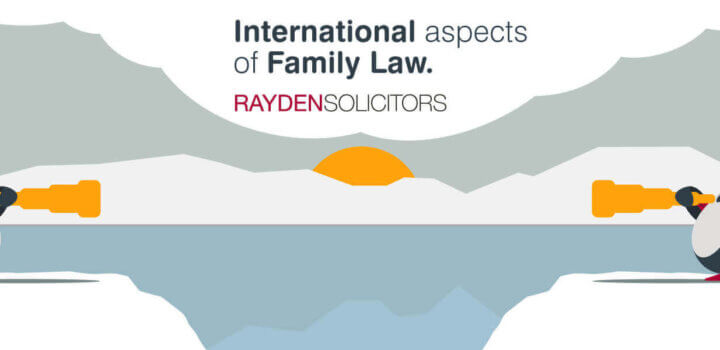Before the Divorce, Dissolution and Separation Act (DDSA) 2020 came into force on 6 April 2022, the divorce law under the Matrimonial Causes Act (MCA) 1973 provided one ground for divorce. This ground was that the marriage had broken down irretrievably and it still applies. However, it previously had to be proven by the petitioning spouse selecting one of five facts to evidence the breakdown of the marriage.
The Old Law – Desertion
One of the five facts to prove the irretrievable breakdown of marriage under the MCA 1973 was desertion.
There was no set definition for desertion, but it was considered by judges to mean that one spouse or civil partner had left the family home without reasonable cause or the consent of the other party. The spouse or civil partner who left also had to have had the intention to end the marriage with the other party. It was therefore not just the physical separation that was required.
To prove an irretrievable breakdown, the court must have been satisfied that the desertion had been ongoing for at least a continuous two-year period before the petition could be filed. If during this two-year period, the couple lived together again for more than six months, the two-year period would have to restart.
Desertion would only begin where there was an intention to desert. If the couple were simply living separately due to work or familial circumstances, then this was not considered to be desertion. If there was a genuine proposal to resume cohabitation together at any time during the two-year period, desertion could not be relied upon as a fact in the divorce. Hence, cohabitation in the marriage must have been intended to end permanently.
What Are The Common Reasons for Desertion?
In our experience, some of the common reasons that were usually associated with desertion were:
- Animosity – the couple may simply not have been on good terms with each other and there may have been a lack of effort being put into the relationship. If they were unable to maintain a healthy and stable relationship, one party may have deserted the other if they intended to leave the relationship permanently.
- Infidelity – where there had been infidelity in the relationship, it may have been difficult for the couple to remain together.
- Finances – at times, there are situations where a couple struggle with their finances and are unable to earn enough income to meet their needs. If these kinds of circumstances become too much, one party may have deserted the relationship to escape from the situation.
The DDSA 2020
The law has changed since the DDSA 2020 came into force. The irretrievable breakdown of the marriage remains the only ground for divorce but there is now no requirement to prove this based on one of five facts. This is referred to as the ‘no fault divorce’ process as couples do not need to apportion blame for the cause of the divorce.
As long as the couple have been married for at least a year, they can apply for a divorce. It is a much simpler process and applications can be made online using the HMCTS service. The DDSA 2020 has also allowed couples to end their marriage amicably and jointly if they would like, though the option to make a sole application still remains.
Co-Parenting After Desertion
Co-parenting is where both parents share the responsibilities of raising their children together, despite the breakdown of their marriage. Where one parent has deserted the other, it can be very difficult to co-parent going forward.
However, there are ways that the couple can agree to work together for the benefit of their children. These include, but are not limited to:
- Consistency – it is considered preferable for children to have a clear routine with both parents and to avoid last-minute changes, enabling them to feel more settled.
- Flexibility – parents should try to be flexible and understand that there may be times when things will not go according to their plans, for example, delays or changes in schedules for one parent. Parents should endeavour to communicate well with each other in order to co-parent effectively in these situations.
- Children first – parents should ensure their children are considered as the first priority and avoid involving them in any arguments as this has been proven to cause children harm. Proving there are no safeguarding concerns, it is best for children to spend time with both parents consistently.
Of course, if one parent has deserted the family in the general understanding of that word and does not wish to maintain a parenting relationship with the children, there is very little that the parent left behind can do. The Court is not able to force a parent to spend time with their children.
Financial Considerations
Where one parent has the main care of the children, the non-resident parent will be required to pay child maintenance on a regular basis. They may also be required to make interim maintenance payments during the divorce process until a final settlement is agreed. In cases where all contact has diminished between the parties and the non-resident parent refuses to pay any financial support, then the Court is able to make different orders for financial relief.
Final Thoughts
It is beneficial that couples no longer have to prove that their marriage has broken down and place blame as the divorce process can be commenced on a more amicable basis. The grounds for contesting a divorce application have also been reduced and therefore it is now very rare for the divorce to be contested.
Should one party desert the other, there may be financial consequences or practical consequences for child arrangements. This will, of course, depend on the nature of the desertion and all of the circumstances of the case.
If you would like to receive further advice about divorce or child matters, contact us at Rayden Solicitors.













